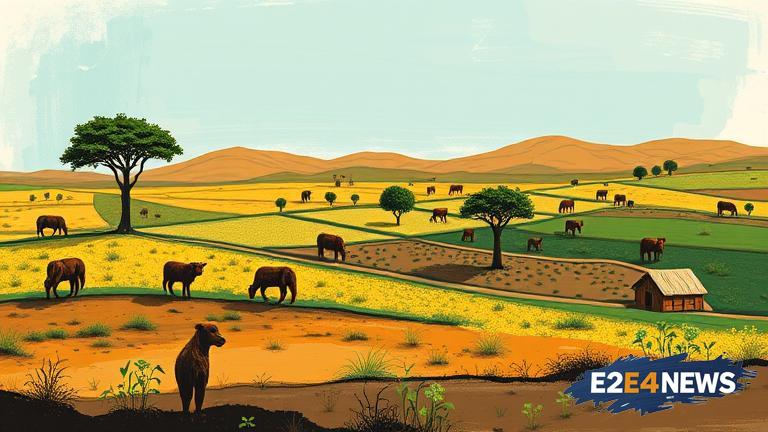The global food system is facing numerous challenges, including hunger, malnutrition, and climate change. In Africa, where a significant portion of the population relies on agriculture for their livelihood, the need for a robust and sustainable food system is paramount. Recently, a podcast highlighted the importance of African research in unlocking stronger food systems. The podcast featured experts from various fields, including agriculture, nutrition, and climate change, who emphasized the need for African-led research to address the continent’s unique challenges. One of the key areas of focus is on improving crop yields and resilience to climate change. African researchers are working on developing new crop varieties that are better suited to the continent’s diverse climate and soil conditions. Additionally, they are exploring innovative approaches to irrigation, fertilization, and pest management. Another critical area of research is on nutrition and food security. African scientists are working to improve the nutritional content of staple crops, such as maize and cassava, and to develop new food products that are rich in essential micronutrients. The podcast also highlighted the importance of involving local communities in the research process, to ensure that the solutions developed are relevant and effective. Furthermore, the experts emphasized the need for greater investment in African research, to support the development of new technologies and innovations. They also called for greater collaboration between African researchers, policymakers, and private sector stakeholders, to ensure that research findings are translated into policy and practice. The podcast concluded by emphasizing the potential of African research to drive positive change in the food system, and to contribute to the achievement of the Sustainable Development Goals. By supporting African-led research, we can unlock stronger food systems, address hunger and malnutrition, and promote sustainable agriculture. The African continent has a rich diversity of crops, livestock, and fisheries, which can be leveraged to improve food security and nutrition. However, the continent also faces significant challenges, including climate change, soil degradation, and water scarcity. To address these challenges, African researchers are working on developing new technologies and innovations, such as precision agriculture, vertical farming, and climate-smart agriculture. These approaches have the potential to improve crop yields, reduce water and fertilizer use, and promote sustainable agriculture. Moreover, African researchers are also exploring the potential of traditional crops, such as sorghum and millet, which are well adapted to the continent’s climate and soil conditions. These crops have the potential to improve food security and nutrition, particularly in rural areas where access to other food sources may be limited. The podcast also highlighted the importance of women’s empowerment in agriculture, and the need to support women farmers and entrepreneurs in accessing markets, credit, and other resources. By empowering women, we can unlock their potential to drive positive change in the food system, and to contribute to the achievement of the Sustainable Development Goals. Overall, the podcast provided a compelling case for the importance of African research in unlocking stronger food systems, and for the need to support African-led research and innovation. By working together, we can address the challenges facing the global food system, and promote a more sustainable, equitable, and food-secure future for all.
